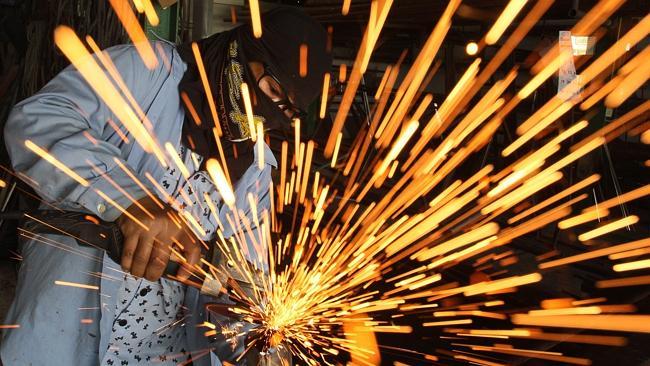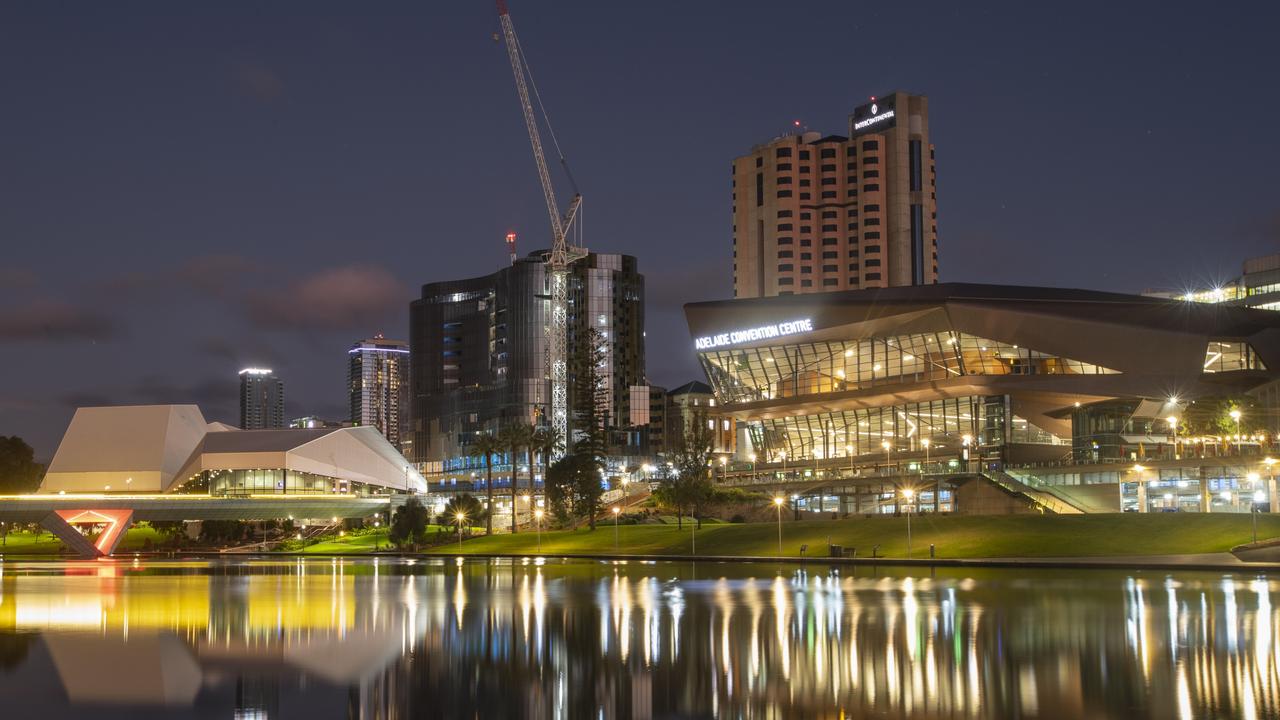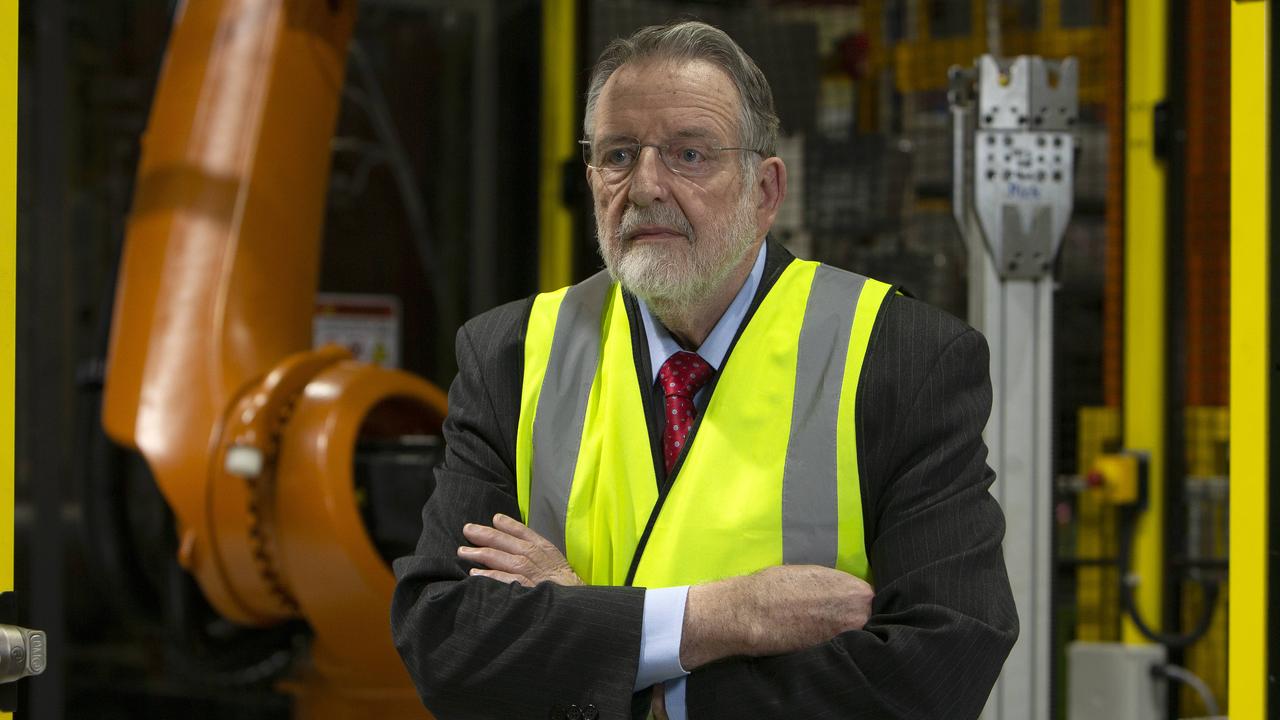Australian steel industry meets to discuss job losses, oversupply of cheap Chinese steel on market
AS Whyalla waits for what’s likely to be very bad news for steel workers on Wednesday, the industry’s leaders are meeting to discuss the fight for jobs — and how to stop the glut of cheap Chinese steel on the market.

SA Business
Don't miss out on the headlines from SA Business. Followed categories will be added to My News.
WHEN a South Australian mayor describes the mood of the region he represents as “morbid”, it makes you wonder whether things can get any worse.
But things can — and, as some expect, will — get worse for Whyalla. On Wednesday, Arrium will inform the market of its half-yearly results, laying bare the depth of financial concerns brought about by a twin hit of plunging iron ore prices and a steel glut.
The level of morbidity facing the town, as cited by acting mayor Tom Antonio, can then be accurately gauged.
Last year, 300 jobs were lost from Arrium’s steelworks as part of an effort to find $100 million in savings. In a further blow to the region, 600 additional mining-related jobs were also lost in 2015.
Despite these job losses, Arrium only found about $60 million worth of savings, which has created “panic stations” about the possibility of future cuts, according to Australian Workers’ Union Whyalla branch organiser Scott Martin.
One Arrium worker, who did not wish to be named, said he feared losing his job in the near future.
“We own property in Whyalla and what happens if our jobs go?” he said.
“We can’t just sell our houses because there are so bloody many of them for sale and the market is already depressed.”
Local real estate agent Peter Calliss said around double the average number of homes were currently for sale in the town and prices had reduced by about 20 per cent.
In an acknowledgment of the extent of the problems facing the local steel industry, the State Government is on Tuesday hosting its inaugural Steel Summit.
A key point of discussion will be how to combat the oversupply of inferior Chinese steel that is saturating markets across the world and making Australian producers largely uncompetitive.
“South Australia is the birthplace of the Australian steel industry, but in the twenty-first century, our steelmakers and fabricators face some major challenges,” Treasurer Tom Koutsantonis, who will open today’s event, said.
Also addressing Tuesday’s summit is Tony Dixon, head of the Australian Steel Institute. He said China produces around 800 million tonnes of steel annually — half of the world’s output — with 100-150 million tonnes of that sent offshore. Australia produces 5-6 million tonnes annually.
“This is severely depressing margins and putting significant pressure on the industry across the world,” he said.
As proof of this point, European industry figures last night took to the streets of Brussels to lobby against the European Union granting China market economy status. Such a move would make it more difficult for EU companies to protect themselves from being a dumping ground for cheap exports.
In response to the growing level of inferior imports, the State Government last year mandated that all public sector construction projects use steel only from Australian-standard certified fabricators and mills.
But for Mr Antonio, this doesn’t go far enough. He said steel for projects such as the O-Bahn extension should be sourced from Whyalla.
“They made a big deal about mandating all steel used in (government) contracts has to meet Australian standards. Well, here is an opportunity to make good on their word,” he said.
Local Labor MP Eddie Hughes said changes to procurement policies would not capture the O-Bahn extensions but he insisted that future SA infrastructure projects would use Whyalla-made steel.
He said the State Government was working closely with Arrium to secure the future of steelmaking in the town. An economic assistance package was also under consideration, he said.
“If the local council was willing to engage with the State Government in a mature way instead of going ballistic in the media, then perhaps we could work together to get more done,” he said.
Mr Dixon said that an increasingly globalised industry requires both state and federal government intervention — not in the form of subsidies or tariffs, but rather in creating a level playing field.
“We need to understand the value created by local industry through the supply chain,” he said.
“We don’t survive on subsidies — we don’t call for that. We’re happy as long as all players are on a level playing field and that fair trade is in fact fair.”
He praised the State Government for leading the way in a discussion around compliance requirements and hopes that other states, which are on “various stages of their journey”, join the cause.
“At the end of the day, these issues cannot be completely solved on a state-by-state basis, there needs to be a co-ordinated national approach,” he said.
Mr Antonio, on the other hand, won’t be happy until Whyalla has a strong independent MP.
“I have no political aspirations but I want to make it clear that Whyalla has been neglected by state and federal governments for too long,” he said.


